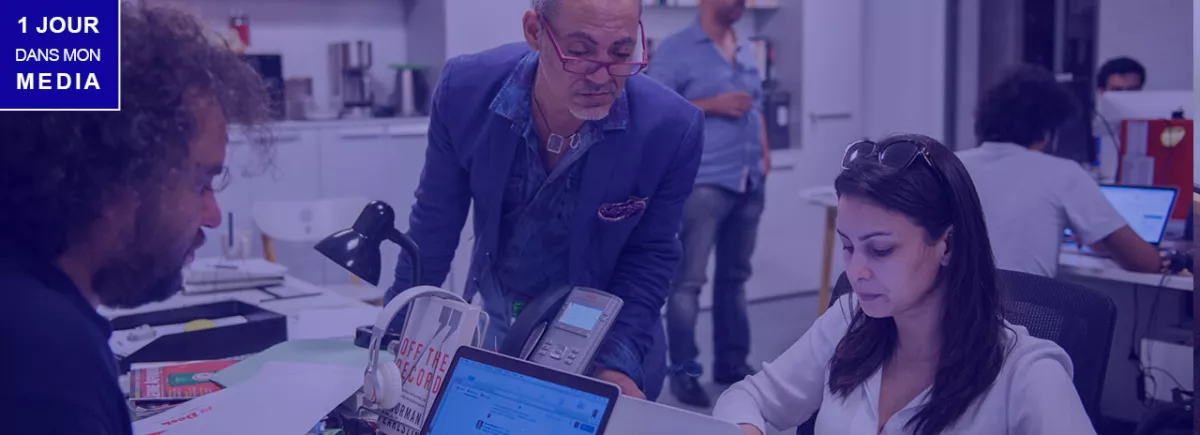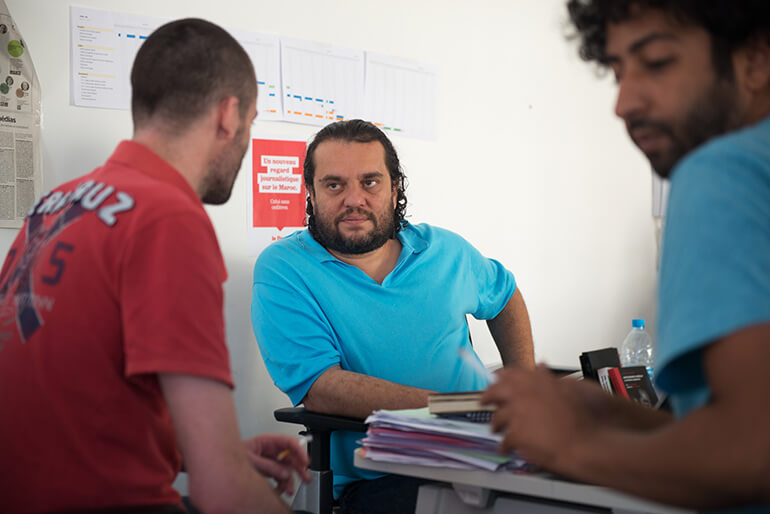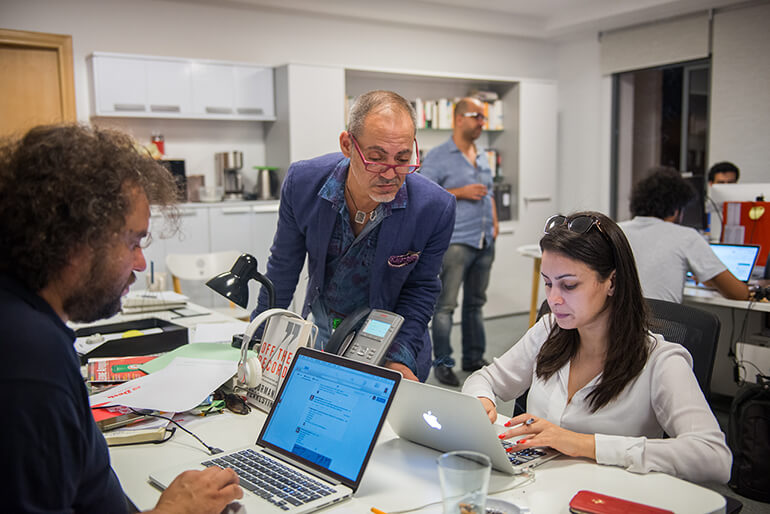
Le Desk takes a gamble on investigative journalism in Morocco
Related project
EBTICAR-Media: Support for innovative online mediaOne day in my media organisation is a series of weekly reports illustrating the daily lives of people who work in media organisations across Africa, the Arab world and Southeast Asia, supported by CFI.
This week, we have an interview with Ali Amar. He is the founder of the
Le Desk.
Le Desk is an online news website launched in Morocco in 2015 on the initiative of journalist Ali Amar. After studying economics, Amar spent five years working in international management for a Moroccan bank. The creation of La Vie économique, a newspaper with a considerable business readership, was an opportunity for him to embark on a career in journalism.
On the threshold of freedom of the press
Morocco is at least ten years ahead of the media transformations happening in other countries today.For Ali Amar, La Vie économique had a positive influence on the Moroccan press, paving the way for independent media. When the paper was sold a few years later, the team of young journalists on its staff decided to launch the weekly newspaper Le Journal hebdo, with the aim of breaking taboos and democratising the freedom of the press.
"This openness allowed us to better withstand the impact of the Arab Spring because we already had forums for debate here", says Ali.
Le Journal hebdo shut down in January 2010 following a court order and its founders dispersed. Ali Amar left the country, working for various different media overseas.
In 2015, he founded
Le Desk, successor to Le Journal Hebdo, at a time when online news was beginning to take off, with the emergence of new journalistic practices. The newspaper received funding from CFI through its Ebticarproject. Ali Amar retained the same model as before, focusing on investigative journalism.

A bold editorial line
Ali Amar is now director of publication at
Le Desk.
The website publishes articles in French and Arabic, offering a precise and documented analysis of the news, something for which it has quickly gained international recognition. "We are partners with Médiapart, as well as ICIJ in the US, the consortium of journalists behind the Panama Papers, for which they were awarded the Pulitzer prize. There is a sort of collective recognition in having been let in on the secret", Amar comments with a note of pride.
Le Desk does not, strictly speaking, fall into the category of popular or mass media; it has a mainly French-speaking, upper middle class readership. "We are not in it for clicks or a buzz. That is not at all what we are about, we target an informed readership", he explains. Even so, the website's content is very often taken up by more well-known online media, helping to popularise the long format.
Desk's offices are in Casablanca, in the vibrant Mers Sultan district. It has a team of around ten people.
Journalists work collaboratively:
"Fact-checking goes on in the newsroom itself. Stories go through several stages of verification and we do our best to give a voice to all parties in our investigations. At the end of each topic, there is a paragraph on how the investigation was performed. It is a mark of veracity for our readers", says the director of publication.

Financial problems
This campaign was inspired by Mediapart, who helped us and guided us in the early stages.Profitability is the main obstacle faced by
Le Desk.
Initially, the website was available only to paying subscribers. Today, its business model is based mainly on freemium with some content being free and the rest subject to a charge. A few years ago, Amar and his team launched the online campaign #DerriereLeDesk (#BehindLeDesk). It was a system unknown in Morocco at the time. It was necessary to educate Moroccans, to explain that quality information does not come for free.
In November 2016, with the newspaper facing serious financial difficulties, a second campaign, entitled
#SauvonsLeDesk (#SaveLeDesk), was launched. It is now paying off: Moroccan companies and universities are taking out subscriptions for their employees and students. The paper is fighting back and, despite some job cuts, has managed to get back on track. Its capital is open to a small group of investors through a shareholder agreement available on the website. Le Desk is still frail but has avoided bankruptcy.
Le Desk is still frail but has avoided bankruptcy.
Difficult times
"We are under pressure and have been on the receiving end of many attempts to discredit Le Desk", says Amar, who believes Morocco is not an easy place to be a journalist. "Journalists are succumbing to self-censorship and conformism. Rather than arresting a journalist for an article, they will lie in wait for you and get you on something else unrelated to your work", he explains.
To avoid any controversy,
Le Desk provides ample evidence to support its revelations. Although the Moroccan media landscape has changed considerably, some topics are still "too hot to handle", according to the journalist.
Moroccans generally believe that journalism is dying: "The media have a bad reputation because of the gutter press, which attacks companies with the aim of racketeering. Independent media have more weight. Le Desk clarified a public debate that had become muddled. We have regenerated investigative journalism as a genre and set new standards", he believes.
Now he must ensure his project's survival, while pursuing new modes of dissemination.


